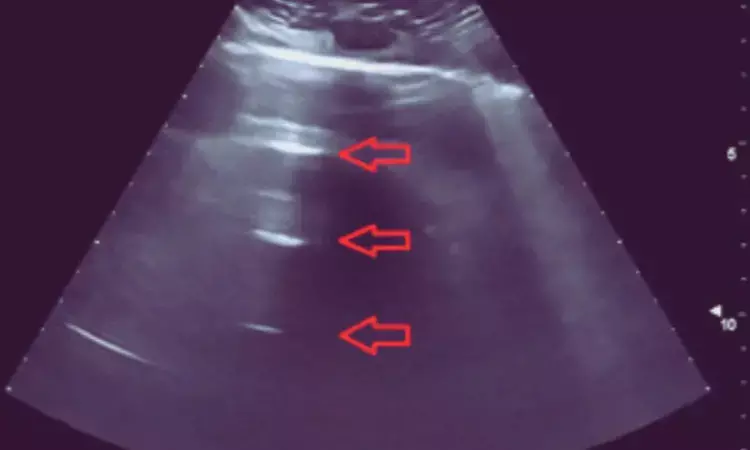- Home
- Medical news & Guidelines
- Anesthesiology
- Cardiology and CTVS
- Critical Care
- Dentistry
- Dermatology
- Diabetes and Endocrinology
- ENT
- Gastroenterology
- Medicine
- Nephrology
- Neurology
- Obstretics-Gynaecology
- Oncology
- Ophthalmology
- Orthopaedics
- Pediatrics-Neonatology
- Psychiatry
- Pulmonology
- Radiology
- Surgery
- Urology
- Laboratory Medicine
- Diet
- Nursing
- Paramedical
- Physiotherapy
- Health news
- Fact Check
- Bone Health Fact Check
- Brain Health Fact Check
- Cancer Related Fact Check
- Child Care Fact Check
- Dental and oral health fact check
- Diabetes and metabolic health fact check
- Diet and Nutrition Fact Check
- Eye and ENT Care Fact Check
- Fitness fact check
- Gut health fact check
- Heart health fact check
- Kidney health fact check
- Medical education fact check
- Men's health fact check
- Respiratory fact check
- Skin and hair care fact check
- Vaccine and Immunization fact check
- Women's health fact check
- AYUSH
- State News
- Andaman and Nicobar Islands
- Andhra Pradesh
- Arunachal Pradesh
- Assam
- Bihar
- Chandigarh
- Chattisgarh
- Dadra and Nagar Haveli
- Daman and Diu
- Delhi
- Goa
- Gujarat
- Haryana
- Himachal Pradesh
- Jammu & Kashmir
- Jharkhand
- Karnataka
- Kerala
- Ladakh
- Lakshadweep
- Madhya Pradesh
- Maharashtra
- Manipur
- Meghalaya
- Mizoram
- Nagaland
- Odisha
- Puducherry
- Punjab
- Rajasthan
- Sikkim
- Tamil Nadu
- Telangana
- Tripura
- Uttar Pradesh
- Uttrakhand
- West Bengal
- Medical Education
- Industry
Lung Ultrasound Aids Early Delirium Detection in Resource-Limited Settings: Study

Researchers have found in a new study that Delirium may be better managed through routine use of lung ultrasound (LUS), especially in low-resource settings. A LUS score >3 combined with a low MMSE can help identify high-risk patients early, allowing timely preventive interventions. However further research is needed to validate these findings and explore underlying mechanisms. The study was published in the Archives of Gerontology and Geriatrics Plus by Thomas F. and colleagues.
Delirium, as a rapid onset of disorientation and confusion, is also common in hospitalized elderly with COVID-19 and reflects poor outcomes. Yet it is underdiagnosed, as its symptoms overlap with dementia and other cognitive disorders. In response to this diagnostic issue, a recent study at San Luigi Hospital sought to assess whether LUS abnormalities and cognitive screening could be useful tools for the early prediction of delirium.
We recruited 64 hospitalized patients with COVID-19 with a mean age of 82.6 years in this prospective observational study. All patients received a lung ultrasound to determine the LUS Extension Score (LUSext) for the extent of lung involvement. Cognitive performance was measured with the Mini-Mental State Examination (MMSE) and the 4AT test for delirium assessment. Apart from these, the investigators also gathered extensive clinical information, such as comorbidities and inflammatory markers. Statistical analysis included ROC curves and multivariate logistic regression to determine factors that were independently related to delirium.
Key Findings
Delirium was seen in 61.4% of the patients (35 out of 57 evaluable cases). Univariate analysis showed a significant correlation with several factors:
• Pre-existing dementia (p = 0.03)
• Increased LUSext scores (p = 0.004)
• Decreased MMSE scores (p = 0.0002)
• ROC curve analysis indicated that a LUSext score >3 was associated with 74% sensitivity and 82% specificity to predict delirium.
• On multivariate logistic regression, LUS score >3 was a persistent, independent predictor of delirium (Odds Ratio [OR] = 4.22, p = 0.023).
• For every point reduction in MMSE score, the odds of developing delirium increased (OR = 0.87, p = 0.007).
This analysis concludes that both high LUSext scores (>3) and low MMSE scores are independent and clinically useful predictors of delirium in older COVID-19 patients. Adding lung ultrasound and cognitive screening to routine hospital evaluations, clinicians can potentially improve earlier detection and preventive treatment for those at highest risk. Additional studies are needed to validate these findings and identify mechanisms underlying delirium in this high-risk population.
Reference:
Fraccalini, T., Bergoglio, I. R., Fonte, G., Trogolo, A., Maraschi, A., Roberts, T., Tarozzo, B., Vitorino, B., Vecchini, J. M., Mariangela, S., Traversa, M., Crea, T., Cardinale, L., Maina, G., Ricci, V., Binello, E., Turja, R., Mallamaci, F., & Volpicelli, G. (2025). Lung ultrasound (LUS) as a predictor of delirium in elderly patients with COVID-19 during hospitalization: A geriatric vulnerability-stress model. Archives of Gerontology and Geriatrics Plus, 2(3), 100186. https://doi.org/10.1016/j.aggp.2025.100186
Dr Riya Dave has completed dentistry from Gujarat University in 2022. She is a dentist and accomplished medical and scientific writer known for her commitment to bridging the gap between clinical expertise and accessible healthcare information. She has been actively involved in writing blogs related to health and wellness.
Dr Kamal Kant Kohli-MBBS, DTCD- a chest specialist with more than 30 years of practice and a flair for writing clinical articles, Dr Kamal Kant Kohli joined Medical Dialogues as a Chief Editor of Medical News. Besides writing articles, as an editor, he proofreads and verifies all the medical content published on Medical Dialogues including those coming from journals, studies,medical conferences,guidelines etc. Email: drkohli@medicaldialogues.in. Contact no. 011-43720751


